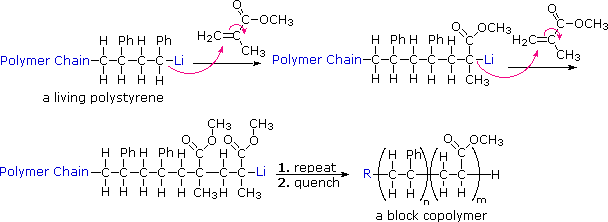Polymers in Construction: Stronger, Less heavy, and Extra Sturdy
Polymers in Construction: Stronger, Less heavy, and Extra Sturdy
Blog Article
Discovering the Varied Applications and Advantages of Polymers in Different Industries
Polymers, with their varied range of homes and capabilities, have actually come to be essential in numerous sectors, each gaining unique take advantage of their application. Polymers. From enhancing safety and performance in the automobile field to transforming medical gadgets in the health care industry, polymers play a critical duty. In addition, their environment-friendly nature is changing the landscape of sustainability practices. As we look into the midsts of polymers in electronics, we uncover advanced developments, while their structural stability transforms the world of building and construction and facilities. The pervasive impact of polymers across markets is a testimony to their adaptability and versatility, shaping the future of countless industries.
Automotive Sector Applications
Polymers play a crucial function in boosting the performance and durability of various components within the automotive industry. These functional materials are extensively made use of in the manufacturing of various parts, ranging from indoor components to under-the-hood applications. One famous use polymers in the auto sector is in the manufacturing of lightweight elements. By changing conventional steel components with polymer-based options, lorries can attain improved fuel performance without endangering on stamina or safety.

Healthcare Market Benefits
In various medical care applications, the benefits of making use of polymers are extensively identified for their diverse range of useful homes. Polymers play a critical duty in the medical care industry due to their flexibility, biocompatibility, and cost-effectiveness. One of the main advantages of polymers in healthcare is their ability to be customized to specific requirements, such as flexibility, sturdiness, and biodegradability, making them optimal for a large range of clinical applications.
Polymer-based materials are extensively used in medical tools, such as catheters, implants, prosthetics, and medicine shipment systems, because of their biocompatibility and capacity to resemble all-natural cells. These products can minimize the risk of allergies or rejections, improving individual safety and security and results. Furthermore, polymers are light-weight, making them ideal for wearable medical devices and guaranteeing person convenience.
Moreover, polymers enable the growth of cutting-edge treatment approaches, such as hydrogels for tissue engineering and nanocomposites for targeted medicine delivery. Their simplicity of processing and sterilization makes them essential for preserving high requirements of health in healthcare settings. In general, the varied benefits of polymers contribute considerably to innovations in medical modern technology and patient treatment.
Ecological Benefits of Polymers

In addition, polymers can contribute to power financial savings due to their lightweight nature. In markets such as transportation, light-weight polymer products can aid minimize gas intake and greenhouse gas emissions. Additionally, my response polymers can allow the advancement of energy-efficient items such as insulation materials that enhance power preservation in structures.
Moreover, polymers play an important function in lowering water contamination. For instance, the usage of polymer-based purification systems can properly get rid of toxins and impurities from wastewater, securing water sources and environments. In general, the environmental benefits of polymers make them valuable assets in advertising sustainability and environmentally friendly practices across numerous sectors.
Polymers in Electronic Devices and Modern Technology
Considering the increasing need for ingenious and sustainable services in modern sectors, the integration of innovative polymer modern technologies in the world of electronic devices and technology has arised as a crucial strategy for driving effectiveness and performance. Polymers have actually transformed the electronics market by enabling the manufacturing of lighter, more versatile, and durable electronic gadgets. From smartphones to clinical tools, polymers play a crucial role in improving item style and capability.
One considerable benefit of polymers in electronic devices is their insulating residential or commercial properties, which aid safeguard fragile electronic my latest blog post elements from ecological variables and electric interference. Furthermore, polymers are essential in the advancement of adaptable displays, wearable technology, and published electronic devices, providing limitless opportunities for creating wise and interconnected tools.
In addition, the use of polymers in digital product packaging has resulted in innovations in miniaturization and thermal management, improving the overall efficiency and reliability of electronic systems. As innovation proceeds to evolve, the adaptability and Learn More flexibility of polymers will most certainly drive even more advancement in the electronic devices sector, forming the future of technology.
Role of Polymers in Construction and Facilities
The integration of advanced polymer materials in construction and infrastructure projects has transformed the method frameworks are made and integrated in modern-day times. Polymers offer numerous benefits in the building and construction sector due to their versatility, longevity, and cost-effectiveness. One vital duty of polymers in building and construction is their usage in layers and sealants, giving defense versus ecological elements such as dampness, UV radiation, and corrosion. Additionally, polymers are utilized in the production of light-weight and high-strength composite materials, enhancing the architectural honesty of structures while minimizing total weight.
Additionally, polymers play a vital duty in sustainable building methods by enabling the advancement of energy-efficient frameworks. Shielding materials made from polymers aid manage interior temperature levels, reducing the requirement for heating and cooling down systems and ultimately reducing power intake - Polymers.
Verdict
In conclusion, polymers play an essential role in various sectors such as auto, medical care, ecological, electronics, and building. From improving gas performance in automobiles to enhancing clinical tools, polymers use numerous advantages.
Report this page